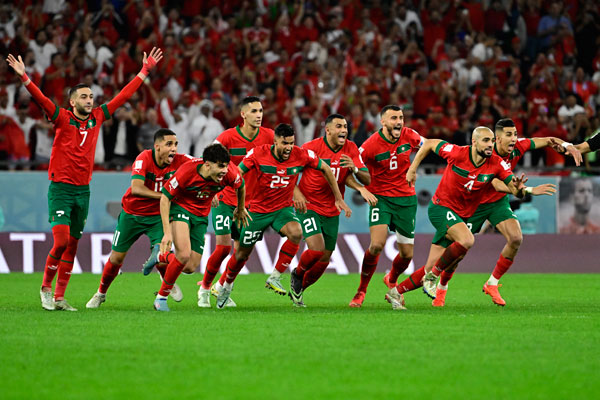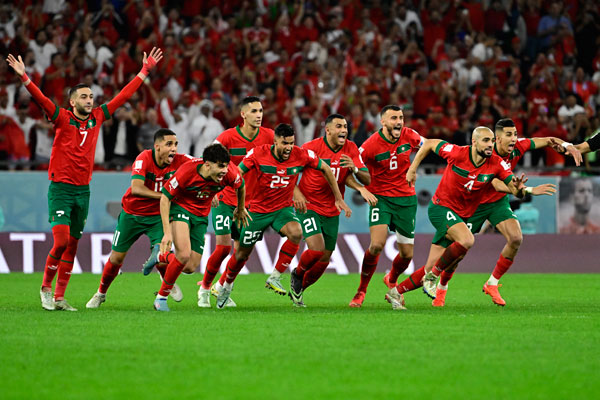
By Eric Eugene Murangwa
Football saved my life, quite literally. In 1994, as I was playing for Rayon Sports, Rwanda’s top football team, I survived the Genocide against the Tutsi thanks to the courage and humanity of my teammates, who shielded me.
After the genocide, sports, specifically, football, was one of the things that brought us back together as a nation. It offered a place to escape, build a community, and hope to strive for a better future. As a result, I have developed a strong belief that sports, and in particular football, have the power to transform society and build nations.
Almost thirty years later, as I watched the inauguration of the 73rd FIFA Congress held in Kigali, Rwanda, on 16 March, I felt the same sense of hope and purpose – but this time for our continent. The FIFA General Assembly hosted in Kigali wasn’t just important for Rwanda but for the whole of Africa. In terms, sports could be a vehicle to transform Africa’s image and attract massive investments to the continent.
The winds of change
For the first time in its history, an elective FIFA Congress took place on the continent. The Congress almost doubled the slots available for African teams in the World Cup—a decision fit for the growing role of Africa in global football.
For several years, a majority of African football clubs and national teams were managed by foreign coaches. But today, things have started to change. African talent is not only found on the field but also in the technical staff, from coaches to executives. For example, Senegal just won the Africa Cup of Nations with a Senegalese coach on the bench, and all the African national teams at the last World Cup in Qatar were managed by Africans. African ownership of sports is the future. We are in the process of building an entire ecosystem around professional sports in the hope that, in the near future, our best players won’t need to move abroad to unleash their full potential, and most importantly, we will benefit greatly from the football market.
Morocco’s PanAfricanim illustrates this point well. Not only is the Moroccan national team managed by an African coach, but the country is also among the bidders to host the 2030 World Cup. Twenty years after the magical World Cup in South Africa, we could be witnessing football’s finest on our continent once again.
Sports for Development
Investing in sports as a vector of development and building social cohesion must be a priority for African countries.
For instance, Rwanda’s passion for sports extends well beyond the confines of football. Today, Tour du Rwanda, which was, up to 2008, just a much-loved national event, has now turned into one of the most popular cycling competitions in the world, attracting top athletes from across the globe. It didn’t happen by accident but rather by deliberate efforts to increase the race level and substantial investment.
We now intend to show the world the face of a rising Africa by hosting the World Cycling Championship in 2025, and I have no doubt that we will make Africa proud.
Inspiring each other
The FIFA Congress shows the power of coming together for a common purpose or, as we call it in Kinyarwanda, “Umuganda.” It is only by coming together as a continent that we will push our sports to the next level. Take the Basketball Africa League (BAL), where Africa’s domestic champions compete for a continental title. Last year, Senegal’s state-of-the-art infrastructures offered great venues for part of the competition, all while ‘Visit Rwanda’ was one of the main sponsors of BAL games held in Dakar. The innovative partnership between Visit Rwanda and BAL primarily targeted African audiences in an affirmation of Rwanda’s commitment to the free movement of Africans within the continent.
But beyond that, the league shows that Pan-African competitions such as BAL are avenues for talent, commercial opportunities, and investment in advertising, broadcasting, and merchandise sales. All this brings transformative money into African economies.
Africa is the youngest continent on the planet, with 60 percent of its population under 25. And with the continent’s population expected to double by 2050, our future will depend on the ability to guarantee jobs for our youth. Investing in sports will allow us to do just that while building upon the unimaginable amount of untapped talent that exists here.
As Africa’s image in Western media remains largely negative, I can only hope that our international partners will follow FIFA’s lead and support our vision.
My years spent training young players in Rwanda and across Africa made me realize our formidable potential as a continent. We cannot waste this potential. More investment and less charity: this is the Africa we want.
Eric Eugene Murangwa, MBE, is a former Rwandan international footballer, genocide survivor and founder & CEO of Foundation Ishami
Share this news
This Year’s Most Read News Stories

The reason internet speeds in Tanzania still lag behind
Vodacom Tanzania was placed 16th at 17. ’08 Mbps, while Airtel Tanzania was ranked 18th available on 12. 89 Mbps.Continue Reading

Mwinyi lashes out at Zanzibar Airport, Port inefficiency claims
Zanzibar President Hussein Mwinyi has lashed out at the Opposition ACT Wazalendo, saying that the claims it raised about inefficiency in three areas within his Government were only meant to mislead the publicContinue Reading

Villagers on Pemba Island lack clean sanitized water
Eight villages on Pemba Island have lacked clean and safe water service while complaining to the Zanzibar Water Authority for failing to solve the water problem in their villages.Continue Reading











